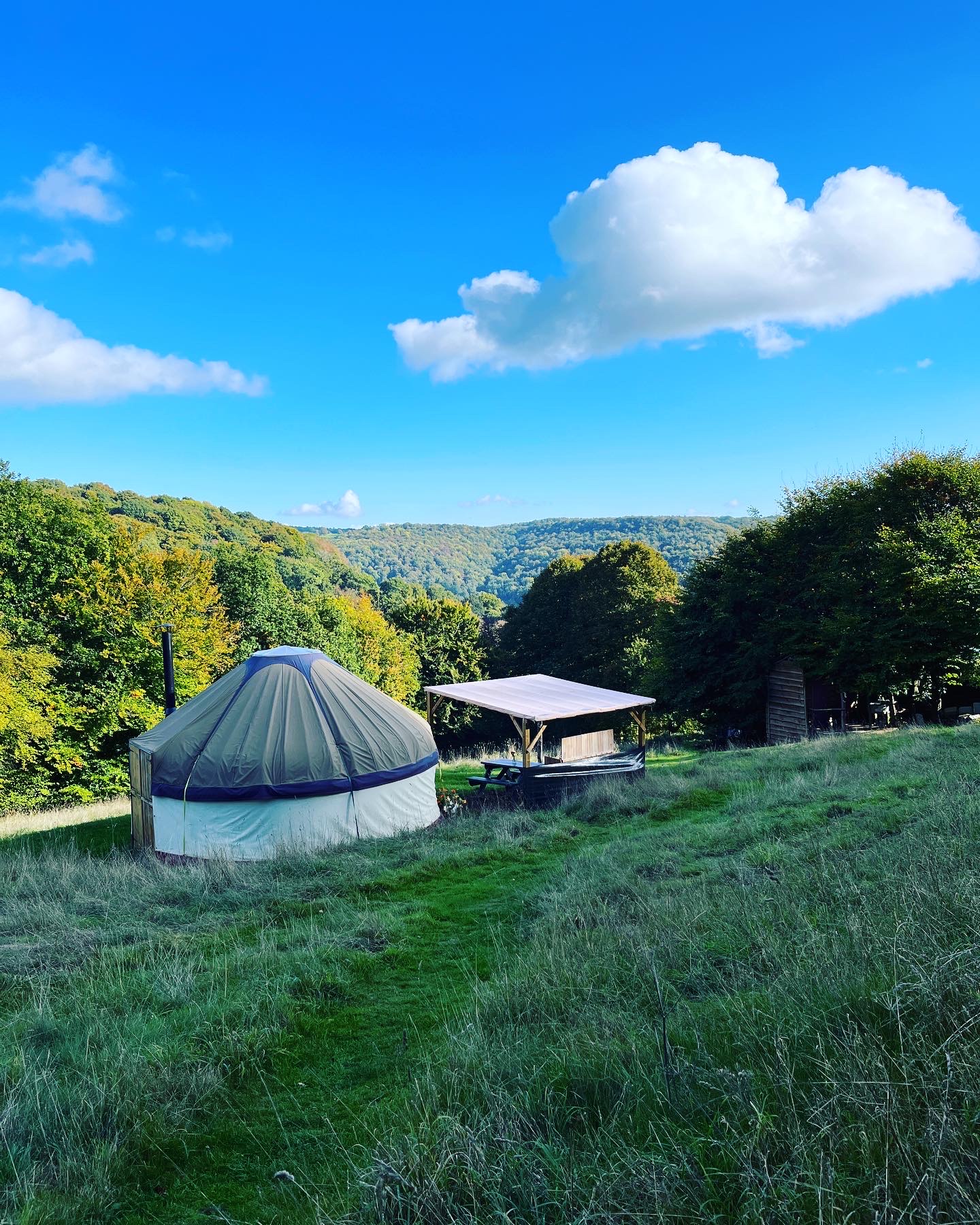Every writer has been through writer’s block, and more than once and it doesn’t mean you’re a bad writer! A writing block can be described as a barrier that prevents us from reaching our creative writing potential. When we tap into our spirituality and embody being a creatrix it can be quicker to overcome. Even when you think writing is hard you can get back into the magic flow state that creatives and artists talk about. When hours pass by in what seems like minutes and the creative process seems effortless. If you are wondering how to overcome writer’s block, this guide will get you back on track.
Having writer’s block can cause a lot of stress, especially if we have deadlines we need to meet. Blocks can occur for many reasons, it could be a lack of ideas, that feeling of no inspiration, you may be stuck on the next chapter of your book, or simply feel unmotivated to write. Whatever your reason is, it isn’t a pleasant experience to go through. But there are various ways you can combat writer’s block, and the most rewarding aspect of overcoming writer’s block, is that when you have finally finished the project you have been working on, or you feel motivated to write again, you can look back and think how well you did to overcome it. Every writer will have a different way they will use to conquer writer’s block, and this article will hopefully help you discover some of the best ways you can utilise them to enhance your writing.
What Is Writer’s Block?
Writer’s block is a phenomenon experienced by writers when they simply can’t write when they want to write. The frustration, pain, and fury that ensues are difficult for many creatives to endure. Often you can feel so stuck in the process you feel paralysed. Luckily there are multiple tools to help journalists, writers, entrepreneurs and creators to overcome writer’s block.
What Causes Writer’s Block?
There are multiple reasons given for writer’s block and they are unique to every individual. Common themes can be:
Fear
Fear is a common fear for many writers and creatives. They are so worried that no one will like what they have written or created that they don’t write or publish anything. While fear is completely normal it stops you in your tracks. Say f**k it to fear it’s no longer serving you. You can download our audio visualisation to help combat the fear of writing here.
“Writer’s block is just another name for fear.” — Jacob Nordby
Perfectionism
Wanting everything you write to be perfect stops the creative process. It’s much better to complete a shitty first draft than one page of perfect prose. Many use perfectionism as a form of protection to protect themselves from criticism. Also, say f**k it to perfectionism too. Done is better than perfect. Your words and wisdom are important, you need to share them with the world.
“If I waited for perfection, I’d never write a word.” — Margaret Atwood
Self-criticism
Being self-critical or comparison-itis can also lead to writer’s block. Most writers compare their work to other more successful writers or even their own earlier work. You can get in a downward spiral of negative self-talk and doubt. Again tell your inner-critic to do one, they are not serving you or the creative process well. Remind yourself of why you are here and what words and wisdom you want to share.
Too Many Ideas
You literally have too many tabs open in your brain and your laptop. You flit from one idea to another and can’t focus on just one. Our tips on walking, exercise, and mediation will help with this.
Too Few Ideas
You have blank page-itis. You are struggling to get any ideas to work with at all. Again getting into flow and connecting back to nature using walking, mediation and yoga will help get you back into a flow state more quickly, so hopefully, you never have to look at a blank page again.
Tiredness or Exhaustion
Have you been burning the candle at both ends? Perhaps you are running a business, managing family life, and trying to write a book. If you are exhausted you can’t be productive. If you are feeling like you are too tired to write or finding it hard to get up in the mornings, make sure you take the time to rest and recuperate, you can’t be productive if you are exhausted or burnt out.
Competing responsibilities
Perhaps you have children, a dog, or elderly parents to look after, plus a busy job and life which means you just can’t prioritise your writing. While many of us are reluctant to ask for help, it’s amazing when you do ask your friends and family as they often come to the rescue. Also, taking time to take stock of what is important. Can you get up half an hour earlier every day or stop watching TV in the evenings? Where can you carve out more time? Can anyone in the household help more around the house?
“The wonderful thing about writing is that there is always a blank page waiting. The terrifying thing about writing is that there is always a blank page waiting.” ― J.K. Rowling
How to Overcome Writer’s Block
1. Move your body
When we walk or exercise, we release chemicals called endorphins, and they help engage the receptors in our brains. Endorphins are known as the ‘feel good’ hormones, and after a stressful period of self-doubt, frustration, and lack of motivation, going for an inspirational walk or doing some exercise may well be the tool we need to unlock your creative potential.
Exercise doesn’t necessarily mean running a marathon or going an adventurous ten-mile hike. Whether we walk outside, go to the gym, run, bike, swim or do yoga, we release endorphins. Another great aspect of exercise is that we are taking ourselves away from the environment where we have been getting stressed. Often a change in scenery can connect our brains to admiring what is around us. It’s easy to stay put and hope that the block we are going through will pass, but if it doesn’t, it can de-energise and make us feel groggy. It can also put us in the mindset of giving up and cause self-doubt, as well as regret for not getting done what was planned. However, saying this, it is also important to be kind to yourself, there will be days where it won’t fall into place.
Ideas often come to us when least expected, and exercising can help us to de-clutter our minds, so you never know, the next time you are out and about exercising, you may be hit with a tonne of inspiration. It could be with a brand-new idea or a way to get around an issue you are having with your writing. Even if you don’t come up with any ideas, exercise is a great way to de-stress.
2. Try a Creative Writing Course
If you’ve not tried a creative writing course, it’s definitely worth looking into. It may be that you want to further enhance your writing, build a writing structure to suit yourself, receive feedback, try new genres, or be involved within a writing community, and creative courses can offer all of this. You may consider looking at university courses, going to a course close by to you or trying an online course.
What you have to remember about writer’s block, is that you are never alone with it. Every writer has experienced writer’s block. The great thing about writing courses is that they enable us to connect with other writers, and they may have their own tips for tackling writer’s block, or they may be in the exact same position.
Writing courses can increase your productivity, they often give writing prompts that forces your brain to think of new ideas and get you out of a non-writing rut. They also have experienced people there to guide you and give feedback on your work. Often, you may be asked to read your work aloud, and as terrifying as that may seem, it may also help to identify problems with the flow of words or how something sounds. Everybody has their own ideas and interpretation of things, and it is always useful to be open to ideas, they may be ones you hadn’t thought about before. You can check out our six-week writing and walking course here which takes you through the elements and gets you back in touch with nature. Other great places to find writing courses are Udemy, or Skillshare. We also love the masterclasses by amazing writers like Neil Gamain.
3. Go on a Writing Retreat
Sometimes, we need a break from our hectic lifestyles, which is why a writing retreat could be the perfect answer . A writing retreat allows you to take time out of normal life to spend time writing with the help of writing mentors, and fellow writers.
Writing retreats are useful because they give us more time. Often our lives are filled with jobs, looking after children, partners, pets, or simply doing the jobs that need to be done in day-to-day life. When you go on a retreat, you are increasing the amount of time you have to dedicate yourself to your writing. Instead of the few hours, you give yourself a day or in the week, you have whole days to dedicate to writing. Think how much writing you could get done with all that time! They don’t have to be expensive either, a lot of retreats offer packages so you can choose how long you want to stay, and what kind of accommodation you want. You can check out our retreats here.
4. Mindfulness
With our busy lifestyles, it is easy enough to think that we don’t have the time to fit this into our daily lives, but it is important to remember that it is an incredibly useful tool for taking ourselves away from stress, and every writer knows that writer’s block can be a frustrating situation to be in. Mindfulness can be described as making yourself aware of the present moment.
There is an easy way to get out of a writing slump, remove yourself from this environment and practice mindfulness. Our preferred method is a mindful walk or time spent in your garden or somewhere in nature. Mindfulness has many different formats to it, but often they are sensory. Each person is different and may have different ways of practicing mindfulness. It may be that you want to close your eyes while observing the sounds around you. Or it may be practicing controlled breathing, or looking around, or noticing what you can smell and touch. Some people may close their eyes and listen to calming music, or sound effects, and these can easily be found on Spotify, YouTube, or meditation apps such as Calm. Whichever way you prefer to practice mindfulness, will help deviate you away from stress, and create a more peaceful mind, so that when you do go back to try your writing again, your brain will be more relaxed, and it will help you to focus better.
Mindfulness doesn’t have to be a long process in your day, it may even be a few minutes, but it will help you stay calm and declutter your mind from anything that is bothering you.
5. Podcasts
Podcasts have become increasingly popular over the years. People listen to them while on their way to work, while doing exercise, or while relaxing. Whatever topic you are looking for, it is likely that there will be a podcast about it. That’s why when you are stuck, it may be useful to search for a podcast about writing.
Podcasts are a great way of gaining insight from writers who have been through the same things, it gives them a platform to share their advice and experiences. There is actually a podcast you can find on Spotify called ‘The Writer’s Block Podcast’ which gives advice, tips and has experienced writers talk about their writing process, and each week has a different topic. It helps to remember that whatever you are going through with your writing, that other writers have been through it too, and understanding their process may help you, and you may even feel like trying them out for yourself.
Alternatively, you can give your mind a break from writing by listening to something completely unrelated, giving yourself a chance to relax and take your mind off your inability to write. It may be a ten-minute podcast, or it may be an hour. Whatever helps you to take your mind off things, it will certainly help your writing. You can find podcasts on Spotify, Apple, Google, and Audible. Our new podcast the Creatrix Journey is coming soon.
6. Reading
Like listening to podcasts, reading about people’s experiences within writing can also be incredibly useful. Not only can you learn a lot about how their writing processes work, but it also serves as a reminder that everyone, even the best writers, experience writer’s block. Some really good books include ‘Writing Down to the Bones’ by Natalie Goldberg, ‘Ten Things About Writing’ by Joanne Harris, and Stephen Fry’s book ‘The Ode Less Travelled.’
7. Writing Daily Morning Pages or Keeping a Diary
Writing every day is the key ingredient in helping you to become a better writer. Like we practice exercise to improve our health, we write every day to develop. The beauty of writing daily pages or a diary is there is no specific subject you need to write about. Julia Cameron advocates Morning Pages in the Artist’s Way as a necessary tool for creative recovery. . You commit to doing three pages of freehand journaling and write about whatever you want. I love this no rules approach, if you ever get stuck try something like free writing to get back into the groove. You can let your mind run free and write whatever comes to mind, and there is no limit to how many words or pages you complete. You could write about your day, what is going on in the world, or any thoughts or feelings you have had recently. You may even write about the writer’s block which you have been experiencing, often the best way to alleviate the stress of our feelings is by writing it down. By writing it down we are acknowledging what we are feeling and getting it out of our system. The more you write the better you will get.
8. Create a Playlist
This one is debatable amongst writers. Some like to listen to music while they write, others like to write in complete silence. If you like writing to music, it may be worthwhile creating a playlist that suits the theme of what you are writing. If it is something dystopian, you may create a playlist that features dark and eerie music. If you are writing something happy, then you may choose something light-hearted. Even if you don’t like writing with music you can still create a playlist and listen to it before you write. Some writers have found that creating a playlist that relates to the mood of their writing helps them with inspiration and new ideas. Classical music can also help with concentration and motivation. It might not work for everyone, but if you haven’t tried it, it may be worthwhile giving it a go.
You Can Defeat Writer’s Block
Writer’s block can be a daunting prospect, the idea of having no ideas to write about, or feeling stuck on a project which you were really looking forward to writing can be incredibly frustrating. Hopefully our guide will help you combat writer’s block. Think of writing like taking a walk, you take one step in front of the other until you complete the journey you wanted to go on. Keep on taking on those steps until you reach your destination.
Last but not least when you get a great idea, make sure you write them down. There is nothing worse for a writer than thinking ‘I’ll remember that for later’ and then forgetting it. Keep a small notepad on you when you walk or use voice notes on your phone to record your ideas. Creativity can occur when you least expect it, you could be ready to fall asleep, at work, in the middle of exercising, in the shower, or even traveling.
Writing blocks are tricky, but you can overcome them. If in doubt go for a walk and spend time in green spaces, forests and woodland. The more you connect to nature and its energy the more in tune you will be with your creative flow and the words that you want to write.
For more inspiration, writing magic and tips download our free Creative Writing Guide.
“I don’t sit around waiting for passion to strike me. I keep working steadily, because I believe it is our privilege as humans to keep making things. Most of all, I keep working because I trust that creativity is always trying to find me, even when I have lost sight of it.” ― Elizabeth Gilbert




